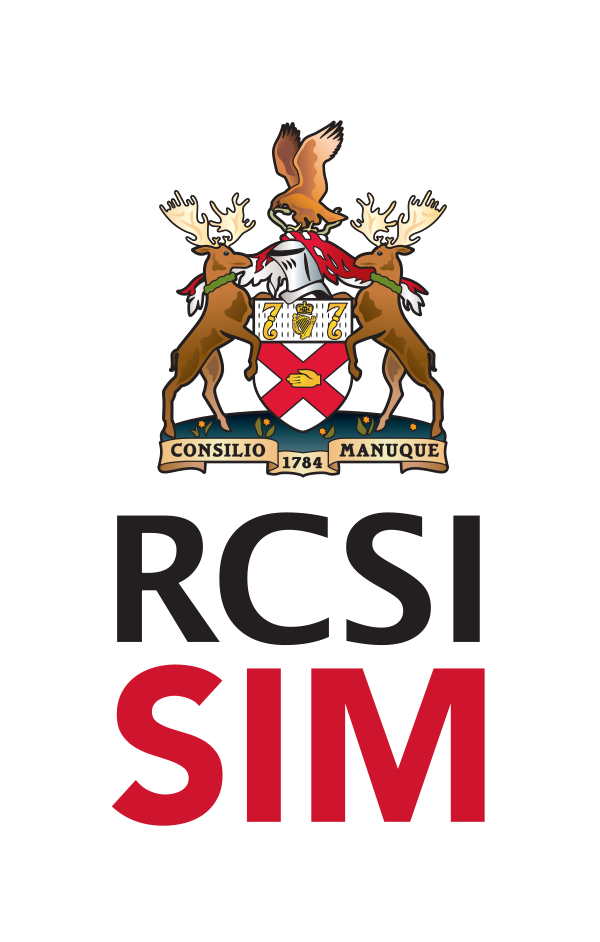Yasir Qaiser Choudhary: RCSI Research Profile
19/09/2023
Yasir Qaiser’s research at RCSI explores how simulation can be incorporated into the physiotherapy undergraduate curriculum. He is developing a curriculum that will support physiotherapy students in mastering essential skills in simulation. As part of our series on RCSI researchers, Yasir sat down with the Office of the Dean of Research to discuss his current PhD research and how his experiences in respiratory physiotherapy brought him from Pakistan to Belgium and through to RCSI SIM.
His interest in research started back during his bachelor's degree in physiotherapy at the University of Lahore, Pakistan. “I was required to complete a thesis and publish before I could get a degree. And I was always interested in publishing, to see my name in a journal. So, I published an article, and gave my defence, and from that point on, I got really interested in the world of research.”
He then moved to KU Leuven in Belgium for his master's, specialising in cardiovascular and respiratory physiotherapy. He also took extra courses on research: how to read papers, and different research methodologies. For his master’s thesis, he took on a project requiring meta-analysis. After defending that thesis, he was quickly offered a research role within the department at KU Leuven to continue research on the same project. He was also invited to participate on the boards of different randomised control trials in the ICU Physiotherapy field. He worked in these roles before embarking on his PhD in RCSI at the beginning of 2023.
Yasir, then, has already had significant international academic experience in Pakistan, Belgium and Ireland. How has this added to his research journey? “It’s been amazing to work across various countries,” he observes, “each country has offered me different tools, and I’ve learned different working ethics. And I think it will be very helpful during my PhD journey to have those problem-solving critical thinking skills that I’ve learned across these countries.”
Indeed, he is employing problem-solving and critical thinking in current research project, which combines the pedagogical tools of simulation in curriculum to teach undergraduate physiotherapy students key techniques and practices they will need before progressing to their clinical placements. “Not only will students have mastered these skills,” he explains, “it will also enhance patient safety.” In Ireland, there is a “matter of emergency” as clinical educators often don’t have enough time to teach all the requisite skills to students coming through for their placements. This new programme will reduce the time required and improve the overall learning experience.
Yasir is in the process of conducting scoping reviews in order to establish the landscape in terms of simulation, Physiotherapy, and undergraduate education. Their following step will be to build a needs assessment study. They will reach out to key stakeholders to consult them on which skills students should learn before commencing their clinical placements. “Because, of course, there are so many skills. And we can’t teach them everything in a simulation session. So, we will target those skills that educators see as most important.”
Currently, they are in the literature review phase of their research. Yasir looks forward to identifying the required skills and developing a simulation session. At that point, the team will have to decide either to work with mannequins or recruit actors to play the roles of patients. This will depend on the techniques and practices they ultimately decide to focus on: “If you’re going to target communication skills, for example, mannequins are not the best.” But whatever their choice, their research will be supported by the “amazing facility in RCSI Simulation. It’s a huge department with high-end technology.”
What skills, if any, does he anticipate they will cover in their simulation sessions? In his review so far, he has noticed many students have difficulty in specialised aspects of respiratory therapy: “An example is when they have to put a tube in through the nose to remove secretion. Even though some skills like transfers look very simple to do, students can still struggle.” Right now, he is focusing on international literature, so more time is needed to assess whether Irish students struggle with these specific tasks.
Looking at his research focuses as his career has progressed, there is a huge diversity of interests. From exploring musculoskeletal disorders in chefs during his bachelor’s degree, through evaluating respiratory muscle assessments for patients on mechanical ventilators as a master’s researcher, and on to developing a simulation curriculum, it is clear that Yasir is eager to explore new opportunities that come his way. “You're always keen to learn a lot of different things, but you also have to make decisions about your speciality.” He explains that he eventually had to choose between musculoskeletal or cardiovascular respiratory physiotherapy, and it was the second that he ultimately decided to pursue further.
He is also in the process of obtaining a physiotherapy licence from Ireland’s authorised body for regulating health and social care professionals, CORU, so that he can continue in clinical practice. He is cognisant of the importance of working on the clinical skills he himself gained during his placements as his work is in educating others in these practices.
His typical week in RCSI is, therefore, busy with research. He collaborates frequently with his supervisors, as they too are working in simulation. He also has a shared office with several other postdocs and PhD students in the RCSI building. He tends to work there, because of the opportunities to socialise with his peers: “There are so many great researchers. It's always nice to go chat with them, and discuss any challenges as they come up. As a PhD student, I think you need people around you who are very supportive and experienced, who are always ready to help you in your journey. I think a PhD journey cannot be done alone.”
For anyone else interested in starting a journey into physiotherapy research, he advises them to be ready for the “bad days” as well as the good: “You will have some bad days in research. It doesn’t matter what stage you are at. When that happens, you need to be persistent, and always think about the end goals. If the road looks rocky or full of pebbles, just put on your shoes and start walking. That’s the only way you will reach them.”
“When the challenges are bigger, the outcome is much greater” he reflects. “There are a lot of opportunities in simulation right now. And that's what I'm trying to do right now: to dig up those opportunities, work on them, and share them with the world.”
Yasir Qaiser
Yasir Qaiser is a physiotherapist and a first-year PhD researcher at RCSI SIM. His specialisation is in cardiovascular and respiratory physiotherapy. He is developing a simulation curriculum to help physiotherapy students master essential skills in simulation, thereby enhancing patient safety and alleviating the burden on clinical placement educators. He previously worked as a clinical research assistant at KU Leuven. He has a BSc from the University of Lahore, Pakistan, and an MSc from KU Leuven, Belgium. Yasir's PhD is funded by the School of Physiotherapy and is a collaborative venture between the School and RCSI SIM.
You can follow Yasir on



